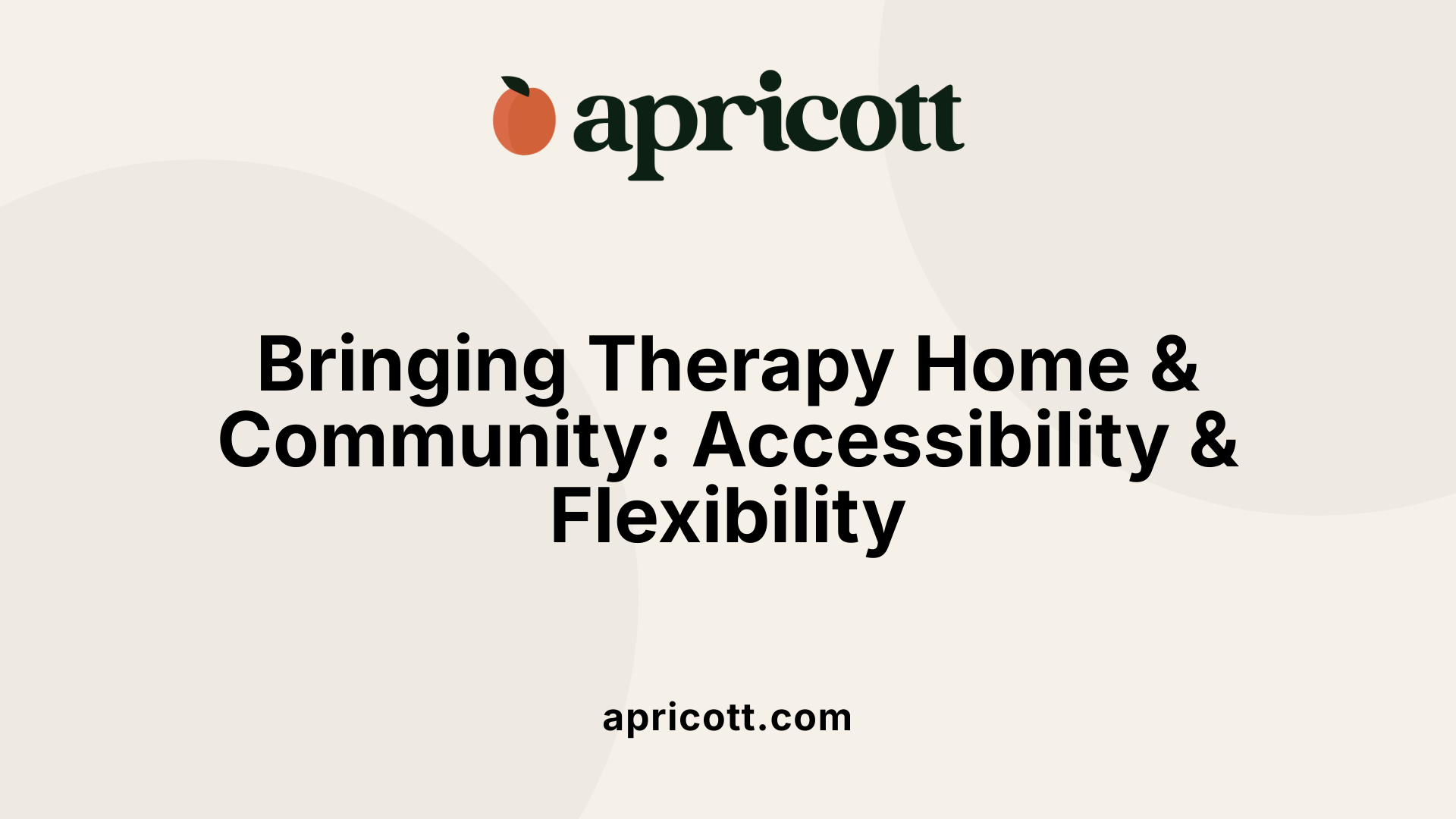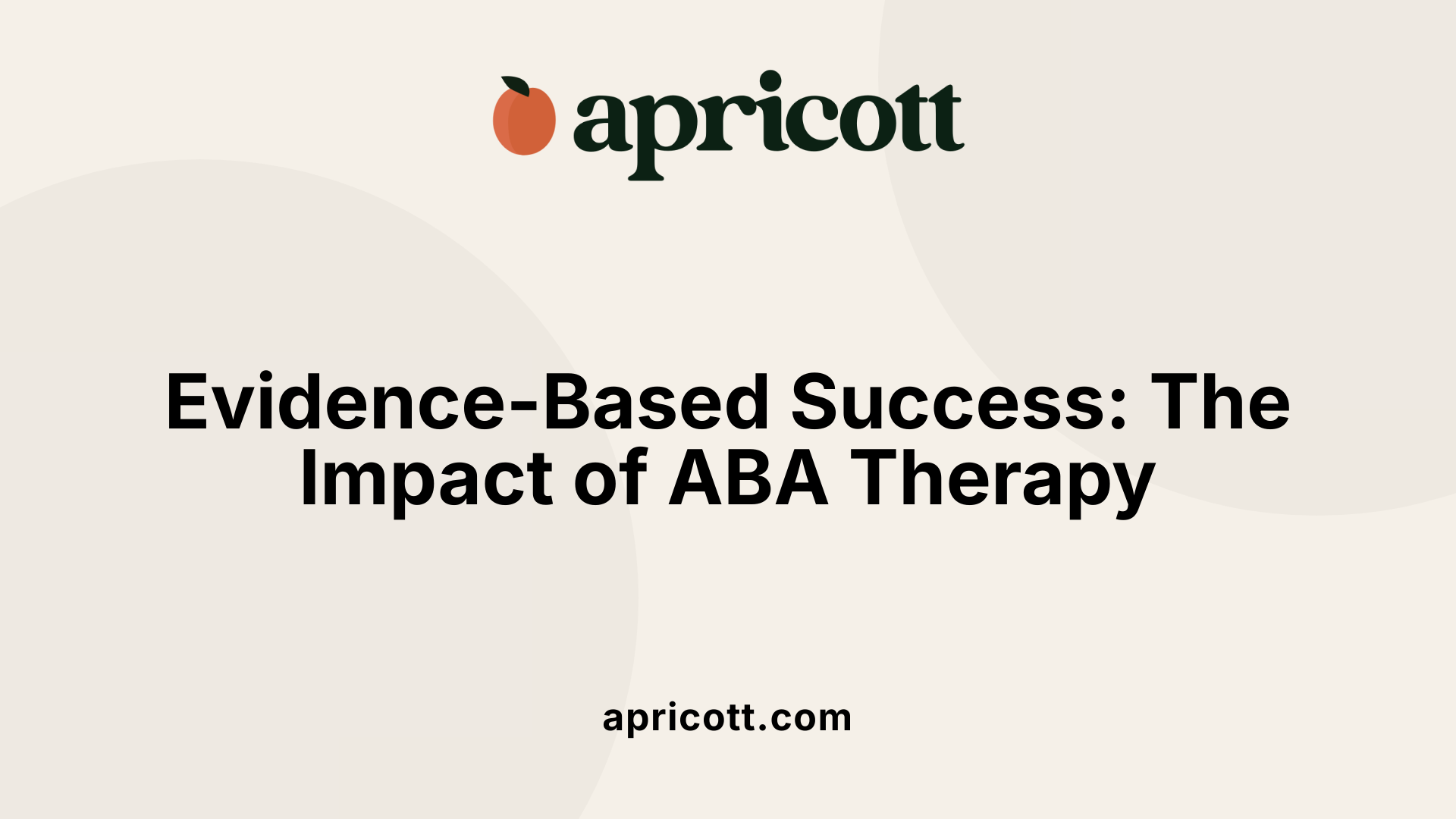Understanding ABA: A Foundation for Positive Change
Applied Behavior Analysis (ABA) is a scientifically grounded therapy that focuses on understanding and enhancing behaviors in individuals with autism. Its evidence-based methods empower children and their families by fostering communication, social skills, and daily functioning in adaptable, personalized programs. "Discovery ABA" represents a specialized approach to delivering this therapy, emphasizing tailored, effective interventions in diverse settings to maximize individual progress.
The Science Behind Discovery ABA: Foundations and Principles

What is Applied Behavior Analysis (ABA) Therapy?
Applied Behavior Analysis (ABA) is a therapy grounded in the science of learning and behavior. It focuses on understanding how behaviors work, how the environment affects them, and how learning occurs. ABA is especially effective for individuals with autism and aims to increase helpful behaviors while reducing harmful or learning-impeding ones.
What Does ABA Therapy Aim To Achieve?
ABA therapy targets improving areas such as language, communication skills, attention, social interaction, memory, academics, and overall functional behaviors. It is highly personalized to address each individual's unique skills and needs, including self-care, play, and motor skills.
What Techniques Does ABA Use?
Key ABA techniques include:
- Positive Reinforcement: Rewarding desired behaviors with meaningful incentives to encourage repetition.
- Antecedent-Behavior-Consequence (A-B-C) Analysis: Examining what happens before a behavior (antecedent), the behavior itself, and what follows (consequence) to adapt strategies and promote positive outcomes.
How Is ABA Therapy Individualized?
Licensed Board Certified Behavior Analysts (BCBAs) design and oversee ABA programs. They assess the individual, set specific goals, and monitor the progress. Programming is tailored carefully to fit individual strengths and challenges.
Where Is ABA Therapy Provided?
ABA therapy is flexible and can be delivered across various settings including:
- Home
- School
- Community environments These options allow therapy to be adapted to real-life situations, enhancing skill generalization and effectiveness.
In summary, ABA is a research-backed, adaptable therapy aimed at helping individuals with autism improve crucial skills and reduce barriers to learning through carefully designed and supervised interventions.
Comprehensive Care: Tailored Programs and Professional Oversight at Discovery ABA

Who Are the Professionals Involved in ABA Therapy?
At Discovery ABA, a team consisting primarily of Board Certified Behavior Analysts (BCBAs) and Registered Behavior Technicians (RBTs) or behavioral therapists work collaboratively. The BCBA plays a pivotal role by assessing each child’s unique needs, designing the treatment program, and ensuring consistent monitoring and adjustment of interventions. RBTs or behavioral therapists then implement these customized strategies during therapy sessions under the supervision of the BCBA.
How Are ABA Therapy Programs Designed and Monitored?
Programs at Discovery ABA are carefully tailored to each child's abilities and goals. The BCBA develops individualized objectives focusing on improving communication, social interaction, self-care, play, and motor skills. Continuous data collection and analysis allow the BCBA to modify approaches as necessary, promoting consistent progress.
How Customized Are the Therapeutic Goals?
Therapeutic goals are uniquely crafted based on the child’s strengths, challenges, and developmental stage. Emphasis is placed on enhancing functional life skills, language and communication abilities, social competencies, and reducing behaviors that interfere with learning.
What Service Delivery Models Are Available?
Services are offered flexibly to accommodate each family’s needs. Discovery ABA provides both in-home and clinic-based therapy options. In-home ABA allows treatment in a familiar environment, which can improve effectiveness and generalization of skills. Clinic-based sessions offer structured settings with access to various specialists.
Is Speech Therapy Integrated?
Yes, speech therapists collaborate alongside BCBA professionals to address communication challenges comprehensively, ensuring children receive multi-faceted support tailored to their individual speech and language needs.
What Is the Frequency and Intensity of Sessions?
ABA therapy at Discovery ABA typically involves numerous hours of one-on-one treatment, designed to maximize gains in social interaction, communication, and reduce maladaptive behaviors. The precise intensity is individualized, considering the child’s responsiveness and therapy goals, ensuring an effective, result-driven intervention plan.
Settings and Accessibility: How Discovery ABA Brings Therapy Into Communities and Homes

In-home vs. Clinic-based ABA Therapy
Discovery ABA offers both in-home and clinic-based ABA therapy for children with autism. In-home therapy is provided in the child’s natural environment, which can be more comfortable and less distracting. Clinic-based sessions offer a structured setting with dedicated resources. Families can choose based on their child’s needs, balancing convenience and therapeutic goals.
Benefits of Natural Environment Interventions
Delivering ABA therapy at home supports learning in familiar surroundings, improving generalization of skills like daily living tasks, communication, and social interactions. The natural setting enables therapists to focus on practical skills such as toilet training and family engagement. According to research from Cincinnati Children’s Hospital Medical Center, combining home-based and center-based interventions enhances children’s cognitive and social abilities.
Flexibility and Adaptability of ABA
ABA programs are personalized and flexible, adapting to each child's unique skills and challenges. Therapy can be adjusted to the family's schedule and can supplement or replace facility-based care. This approach ensures that interventions remain relevant and effective in real-life contexts.
Insurance Coverage Options
Discovery ABA accepts various insurance plans including Aetna, Kaiser Permanente, and Cigna. Many private insurance and Medicaid plans cover ABA services when prescribed as medically necessary, reducing financial barriers for families seeking therapy.
Telehealth Services Expanding Reach
To increase accessibility, Discovery ABA incorporates telehealth services, using videoconferencing to deliver remote ABA therapy. This is especially beneficial for families in rural areas or those with limited transportation options. Telehealth provides flexible scheduling and continued progress monitoring with therapists.
Parent and Caregiver Training Embedded in Programs
Parent and caregiver involvement is a cornerstone of ABA success. Discovery ABA integrates training into their programs, empowering families with skills to support their child’s development at home. Evidence shows that parent-implemented interventions improve social and verbal behaviors, maximizing therapy benefits.
| Aspect | Description | Benefits |
|---|---|---|
| In-home ABA Therapy | Therapy delivered in the child’s home setting | Comfort, practical skills, better generalization |
| Clinic-based Therapy | Structured care in a clinical environment | Consistent resources, controlled learning environment |
| Insurance Coverage | Accepted plans like Aetna, Kaiser, Cigna | Reduced cost burden, increased access |
| Telehealth | Remote ABA therapy via videoconference | Accessibility, flexibility, convenience |
| Parent Training | Coaching caregivers to support therapy goals | Strengthened learning, improved home support |
Proven Impact: Evidence Supporting ABA Therapy for Autism

What does the scientific evidence base say about ABA therapy?
Applied Behavior Analysis (ABA) therapy is firmly established on a robust scientific foundation. It is recognized as an evidence-based practice, substantiated by numerous research studies highlighting its effectiveness in improving various skills in children with autism. The therapy’s evidence base spans decades, with a multitude of empirical studies demonstrating its positive impact on behavioral and developmental outcomes.
Which notable organizations endorse ABA therapy?
ABA therapy has gained endorsements from leading authorities in healthcare and psychology. Notably, the U.S. Surgeon General and the American Psychological Association officially recognize ABA as an effective treatment for autism. These endorsements reinforce ABA’s credibility and validate its use as a medically necessary intervention covered by private health insurance and Medicaid plans.
What clinical outcomes have studies documented?
Research studies have consistently shown that ABA therapy enhances key areas such as language acquisition, communication, social skills, and adaptive behaviors. Children undergoing ABA demonstrate improvements in attention, focus, memory, and academic performance, while problematic behaviors decrease. These measurable gains contribute to long-term functional independence and quality of life.
What are the benefits of combining home-based and center-based ABA treatments?
Combining home-based and clinic-based ABA therapy has been shown to optimize treatment outcomes. For example, the Cincinnati Children’s Hospital Medical Center reported in 2013 that children receiving both modalities exhibited significant improvements in IQ, communication, gesture use, and play skills. This blended approach leverages the strengths of each setting to reinforce learning and generalize skills.
How effective is ABA therapy in improving IQ, communication, social, and adaptive skills?
ABA therapy’s tailored interventions focus on a wide range of developmental domains. The therapy’s structured, positive reinforcement techniques have led to marked improvements in IQ scores, enhanced verbal and nonverbal communication, strengthened social interaction, and better daily living skills. These changes are pivotal for increasing independence and social integration for children with autism.
Empowering Families: The Role of Parent Training and Community Support

Why is parent involvement important in ABA therapy?
Parent involvement is crucial in Applied Behavior Analysis (ABA) therapy because it fosters a consistent learning environment beyond formal sessions. When parents are trained and engaged, they can implement techniques throughout daily routines, helping reinforce progress and encourage skill retention. This collaboration empowers families to be active participants in their child's development, creating a supportive atmosphere essential for long-term success.
How do parent-implemented interventions enhance social and verbal behavior?
Parent-implemented interventions involve caregivers applying ABA strategies under professional guidance. Research shows these interventions improve children’s social interactions and verbal communication by increasing practice opportunities in natural settings. Through coaching and training, parents learn to deliver prompts, reinforcement, and corrective feedback effectively, which expands learning and accelerates behavior change.
What training is provided to enhance social and verbal behaviors?
Training for parents typically includes:
- Understanding behavioral principles and data collection
- Strategies for promoting communication and social skills
- Techniques for managing challenging behaviors
- Methods to incorporate learning in daily activities This hands-on coaching often happens during in-home therapy sessions, fostering skill generalization and ensuring parents feel confident supporting their child.
How are skills generalized across different environments?
Generalizing skills means applying learned behaviors broadly—across settings, people, and situations. ABA programs emphasize teaching in natural environments like home or community, enhancing a child’s ability to transfer skills. Parent involvement is key to generalization since caregivers help establish consistency. Additionally, community support, such as school collaboration and social groups, further facilitates applying skills in varied contexts.
What community resources support families involved in ABA?
Families benefit from access to various community resources, including:
- Parent support groups and training workshops
- Early intervention and school readiness programs
- Professional oversight by BCBAs and speech therapists
- Insurance support to ease therapy access
- Telehealth services increasing reach and flexibility These resources collectively strengthen families’ capacity to sustain and optimize ABA therapy gains.
Discovery ABA: A Pathway Toward Growth and Independence
Discovery ABA exemplifies the transformative potential of Applied Behavior Analysis by delivering individualized, evidence-based interventions that promote skill development and reduce challenging behaviors in children with autism. Through a seamless integration of scientific principles, professional expertise, and family collaboration, Discovery ABA provides a supportive foundation for lasting progress, helping children thrive across their environments and empowering families on their journey toward greater independence.
.svg)
.svg)








